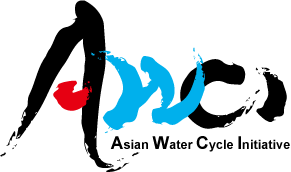Introduction
The 10th AWCI ICG Session is being held in conjunction with other events relevant to the AWCI agenda, namely
the 7th GEOSS Asia-Pacific Symposium and the
10th GEO Integrated Global Water Cycle Observation (IGWCO) Community of Practice Meeting.
GEOSS AP Symposium
The GEOSS AP Symposium will be held from Monday 26th through Wednesday 28th May and will address the theme of gBenefits for Society from GEOSS evolution toward addressing Sustainable Development Goalsh and will focus on the advancing next 10 years of the Global Earth Observation System of Systems (GEOSS). On the second day, the Symposium will organize five focused parallel sessions including one dedicated to AWCI, which will cover the water cycle topics as well as water-food-energy nexus. The AWCI ICG representatives are expected to contribute to this session.
The AWCI ICG session
The half-day AWCI ICG session will deliberate on AWCI structure rearrangements for the needs of Phase 2 and will mainly include discussion sessions expecting all the ICG members to contribute their views and suggestions. It will also reflect on the outcomes of the GEOSS Asia-Africa Water Cycle Symposium held in Tokyo, November 2013, which included a set of the Project Design Matrices that should be pursued forward as part of AWCI Phase 2 activities. This Symposium resulted in a set of recommendations towards PDM implementation that have been summarized in the Executive Summary Report:
- PDMs need to be packaged in terms of comprehensive projects with all necessary elements, budgets, and implementation strategies in such a way that there is something concrete to share with donors.
- Scientific aspect and operational aspects of the PDMs need to be considered to provide tools for decision makers (identify key partners at scientific, research institution, and operational agency levels, for each basin).
- Differentiate the needs of basins and donors, and match accordingly (from among several agencies).
- Encourage discussion with stake-holders, especially with governments (primary stake-holders for scientists).
- Foster regional cooperation to help exchange best-practices and promote the transition from science to operational phases, and assist in knowledge sharing and global collaboration.
- Leverage existing capacities and planned assets and resources, making use of appropriate national and international policies and institutional arrangements.
- Encourage closer cooperation with global water-related UN initiatives, such as UN-Water and the Global Water System Project (GWSP).
- Focus on Sustainable Development Goals (SDGs) and providing a means to monitor progress towards them is key, since SDGs are important to the international community. It is possible to achieve water security and disaster risk reduction in all countries world wide, and thus water issues should take center stage in SDG discussions.
- PDMs circulated as widely as possible in order to raise awareness, and interact with possible collaborators and supporters.
- Demonstrate unique niche projects fill while supporting other initiatives through value-added outputs, and thus move towards fulfilling high-level goals such as the SDGs.
- Orient proposals towards national governments where ministries of foreign affairs could take responsibility to move the proposals forward and support submission to donors such as JICA and AfDB.
- Entities such as GEO, UNU and others can be used as a platform to negotiate with donors for each PDM.
- Communicate with embassies, which can be an effective way to promote support for the PDMs.
- Sharing research and operational experiences and joint capacity building programmes by means of large-scale and high-level global, international frameworks, in order to foster collaboration and raise visibility.
The IGWCO CoP Meeting
The Meeting is focused on the future directions of GEO Water in reflecting on the endorsement of the next 10 years of GEO at the GEO Ministerial Summit in January 2014. Discussed will be the ideas for the GEOSS Water Strategy implementation plan and how to more strongly engage other SBAs and strengthen contributions to GEO in the areas of integrated data sets, information systems, capacity development, and user engagement. The meeting will also hold a session dedicated to the AWCI phase 2 plans and activities
